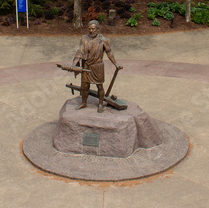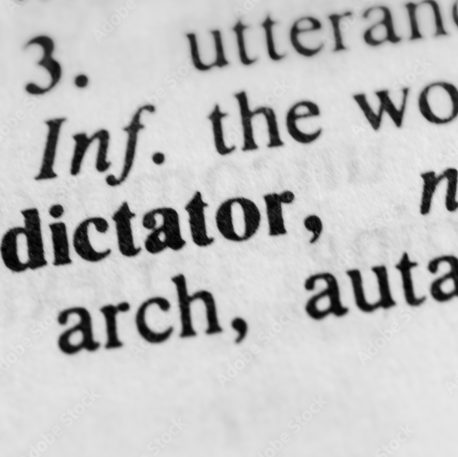“What remains under consideration is how Cincinnatus, the early Republic, and the other examples, cultures, and structures of governance will be considered in future decisions of how human beings will live in a globally connected commercial, technological, and cultural world…
In Rome’s movement away from a republic, Livy led a first century B.C. revival through the Cincinnatus example. To communicate Roman virtue through the ancient legends to his age, Livy faced a project similar to the one faced by the United States’ founders; he quarried history in a study of models and men to either emulate or avoid so as to forestall the ‘dangers of avarice, luxury, and passion.’ Used in the Livy project to describe the ideal citizen-soldier model for a new generation, Cincinnatus was a spark intended to ignite a renewal in traditional Roman values.” – Michael J. Hillyard from Cincinnatus and the Citizen-Servant Ideal: The Roman Legend’s Life, Times, and Legacy

“He laid down his sword and returned to farming.”
The majority of the population, in any society, are taken by lust for material power, ephemeral as it is in its various forms to do with physical pleasures. These needful illusions also disable the moral capacity of those who strive for more of such power, once acquired, always falsely. This is because the people typically capable of achieving this false power in the material World are those who strive most for it. Such strivers after false power must naturally be blind to the deeper aspects of reality and true power. Many who demonstrate virtues may still have residual success in the material, however only at the expense of ignoring many evils surrounding them.
ROMAN DICTATOR
Lucius Quinctius Cincinnatus was ordained dictator of Rome at his rural farm as he was changing out of his dirty farming clothes and into the formal toga. This is as a quaint story about a humble man. Cincinnatus had the opportunity to grab for power and tremendous wealth, but he did not. He laid down his sword and returned to farming, after he had successfully defended the Roman republic from disaster. He could have taken advantage of the situation but his concern was for Rome, the community, not himself. This was Cincinnatus expressing a Quirinal, or Roman, set of virtuous ideals.
Historically, circumstances such as these were often used as opportunities to extract resources. Cincinnatus did not do this. He gave up on power that many Romans would have supported even beyond its optimal use. Cincinnatus might have done more good for Rome if he had stayed in office, however he also knew that his actions would set precedent, the evils of which could theoretically overcome any good, from his perspective. Even if he had a few good ideas that might have been beneficial to implement from the position of dictator, the potential costs in terms of stability to the republic might have weakened the structure of Roman culture and government.

“This is a quaint story about a humble man.”

DUTY OF A LEADER
The leader’s duty is meeting crises in the moment and matched to the aspects of special personal gifts, but not for any personal benefit. The term “perfect” implies a fitness to moment and circumstance, but more so it is correction since it derives from Latin meaning “through to completion.” This is the height of Roman manliness and also expressive of those Quirinal virtues aligned with Virtus and Vejovis (Asclepian / Promethean). Vejovis offered salvation to those outside the direct comfort of Jupiter, which included the ill-treated, wrongly accused criminals, and those cast out from community unjustly. Jupiter, or Jovis, represents all natural powers and so Vejovis, or “opposite-jovis,” has to do with those immanent, or mental, powers a person has to face otherwise insurmountable odds. This natively includes an expectation of improvements despite the consistent failure through lack of power or the material imperfections. This is reaching through the darkness to achieve light.
SKILL OF A LEADER
Cincinnatus’s skill was in comprehending how to interact with powers, presently most associated with “humility.” Acceptance of limitations in utility of functions is an important trait for all leaders to develop. Of course, this goes along with honesty and putting common interests ahead of individual interests. This is a mode of behaviour in leadership based in utility. Given all factors, Cincinnatus understood that his ability to accomplish whatever task would be limited, even within the purely martial engagements. His is a model opposite that of the typically portrayed power-hungry prince. The strategic mindset inherent of this understanding lends itself to military successes.
LEADERSHIP WITH BOUNDARIES
From the perspective of those who chose to carry forward this story, Cincinnatus represented an ideal dictator to republicans. This ideal dictator would preside long enough to intercede upon the extraordinary events for ending threats and securing the state but then do nothing more. Cincinnatus was most certainly a republican, as demonstrated by his respect for senatorial formalities and the Roman republic generally. Since it is so ideal for the purposes of a republic, one may wonder if the story was not altered for republican propaganda.
Regardless connections to republican partisanship, the main purpose of Cincinnatus’s story is as an example for leadership with boundaries. How much can an authority reasonably ask of their charge? It would seem this limit should have to do directly with the purposes of the authority itself and its productivity. This is expressed in the story of Cincinnatus by his unwillingness to disrupt the governance of Rome any more than it had been. This was authority setting reason and the community above the wants of the individual. Reasonable authority is engaged to avoid failure and assure success, given a set of circumstances.
TYRANNY WITHOUT BOUNDARIES
Bad agents in corporatist governments create and promote emergencies to force consent toward expansions of authority with the adapted circumstances. Even moreso, blind chains of authority grant unsustainable power, as illustrated by the recent COVID-19 vaccine fiascos (Roe 2023a). Nobody in authority acted as though they were aware of limits in medical technology nor of the human capacity to lie. Authority was abused from top to bottom and in many aspects of life. This was done not merely by people within government or corporate hierarchy but neighbours and strangers without any titles. This was unreasonable authority, or leadership outside boundaries.



“In reality, the super-wealthy use established ‘cheat codes,’ like in video games but designed to alter the matrix of human economy and politics rather than the data in a game, in order to acquire and maintain such vast wealth.”
ALL AUTHORITY
So, this is not simply an allegory to take on its face as willingness to eschew authority on the grand scale alone but rather should be taken as a model for any authority in general. This would include everything, like management, supervision, or even parenting. If authority is not improving things, it is not aligned with good. Therefore, such non-productive authority is founded in false power, which is involved with base material concerns. The spirit does not seek command or to convince through deception. Rather the spirit seeks a commending of higher order in the minds of clients, learners, seekers, and initiates. The love of universal order is what motivates all work towards it. When Cincinnatus took up the career of farmer, he did so for the purpose of order and improvement, plainly. His motivations were the same in securing Rome and their culture militarily against aggression.
LIKE RUST
True power cannot come from resources, material wealth, hoarding, or moving pleasures, as these represent corruptions of the natural tools within community. Corruption only appears powerful because it erodes legitimate power, however, like rust, corrosion, or mold, it cannot build something similar or improve a system. True power is possible through improvement, or perfection. This is because the natural flow of entropy makes perfection impossible except through action and time. ‘Perfect,’ in a static sense, is impossible outside of the abstract mind. This is so true that ‘perfect’ and synonyms should not be used as adjectives or as though perfection could be achieved, but strictly in non-finite verbal forms. Completion never occurs, however, since we live in an entropic reality.
EXPLOITATION
Vast amounts of wealth can only occur through exploitation of the community tool of money. In computer programming these would be equivalent to a memory leak, which any programmer worth his salary would label a bug and fix post haste. In reality, the super-wealthy use established “cheat codes,” like in video games but designed to alter the matrix of human economy and politics rather than the data in a game, in order to acquire and maintain such vast wealth. The materialists who rule this World are well aware that they must destroy and weaken the strong and virtuous, because such people challenge their artificial hegemony. The strong and virtuous recognise the limitations of power, and the purpose of tools for community, such as money and defence.
TRUE POWER
This spiritual power based in truthful perfection only derives from love, family, community, and trust, which are most readily healthy insofar as they are in alignment with perfection. Cincinnatus’s greatest powers, even as dictator, came from the trust he earned from the Romans, through completion and achievements, that is perfection. Citizens, senators, and soldiers alike believed in him because he met expectations through progress, and this was his greatest asset, only possible through comprehending limitations. It was well-placed trust on the part of the Romans apparently, as he did not exploit it for his own benefit. Now, more than ever, we need leaders willing to do what is necessary in the moment for community, and not out of self-interest. Outside of love, family, community, or trust, all powerbases are founded upon corruption, either of material resources or spirit.

“In future issues the actions of these corporatist foundations and what they promote as virtuous or good for society will be deconstructed and contextualised to provide insight into actual goals.”

“Of course, a virtues system culminating in willpower is not fit for promoting by those who wish the population to remain subservient, in false humility.”
SUMMARY
Corrupt power exploits community, always, since this is its identification. This bears repeating in another way: powerful material interests always deter the spiritual pursuits most beneficial to people, both immanently and in projection. More corruption leads to more material power. The most corrupted powers of this World do not want people learning, thinking, and remembering, rather they need them to be locked in a state of impotent desires.
REFERENCES
Roe, M. A. (2023a). Corporations Promote Profitable Sins as Virtues series. 24K Journal of Virtues Science. Series 1 Issues 1 & 2. https://24k.cc/article-categories/corporations-promote-sins-as-virtues/
Roe, M. A. (2023b). Little Boots on the Beach – How Organisational Mortality Invites Autocratic Corruption. 24K Journal of Virtues Science. Series 1 Issue 1. Little Boots on the Beach – How Organisational Mortality Invites Autocratic Corruption
